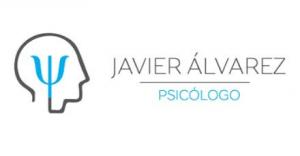Rodolfo Antuña: The technological revolution is changing healthcare
If we think about what the word "health" means, ideas and mental images may come to mind. related to the (proper) functioning of the human body: enjoying a healthy state, with the absence of pathologies. However, if we broaden the focus we will realize that it goes beyond the biomedical: there is a reason a network of health systems, which are a social phenomenon.
Health management is a challenge for these two reasons: its task is of great importance for the human being, but at the same time involves many people and entities that must coordinate when working and establish a good flow communicative. In addition, as scientific and technological advances in health are produced, the diversity of processes, resources and strategies to be implemented to care for the well-being of citizens grows. Bearing this in mind, it is normal for specialized training programs to emerge in this area; We will talk about it in this interview Rodolfo Antuña, teacher and Director of the Master's Degree in Health Management and Management at the International University of La Rioja (UNIR).
Interview with Rodolfo Antuña: the future of health management
Rodolfo Antuña has a degree in Medicine and has more than 30 years of experience in the health sector. He has worked as a consultant in the healthcare technology, insurance and healthcare management industry. He has held positions in the Medical Directorate of various hospitals; He has been Deputy to the General Director of Health Care in the health departments of Castilla-La Mancha and Madrid, as well as Managing Director of the Health Area of the province of Cuenca. In addition, he currently collaborates in university teaching, being the Academic Director of the Master's Degree in Health Management and Management in the UNIT. Today he presents us with his vision of the future of healthcare management.
In general, how do you see the future of healthcare management in terms of the implementation of new technologies, and how could they transform the sector?
Management professionals are aware that we are immersed in a technological revolution that is undoubtedly changing the ways of doing things in the health sector. The managers understand without the slightest doubt the opportunity that it represents and their problems lie more in the direction of how to go about doing that. implementation from the current situation of the health systems, understanding as such, the different types of determinants that frame management; administrative, legal, economic, the circumstances of the professionals and, of course, those of the patients.
Regarding how it could transform the sector, the field is very wide, but in a synthetic way I would say that in many areas that are gradually integrating to have an impact on efficiency, sustainability, safety, professionals, etc., and, ultimately, on the structure and way of doing things health.
The field is vast, but to mention a few examples; the possibilities of massive and rapid exploitation of data and the predictive models applicable to the possibility of anticipate risks of the appearance of complications and its usefulness in chronic pathologies, in oncological treatments, etc etc. Virtually real-time monitoring of patients, diagnostic imaging, availability and accuracy.
These and many other improvements present managers with changes in the way they monitor, care for and manage patients and, therefore, in the resizing of all kinds of resources to respond to these needs faster, more efficiently and more efficient. In my opinion as a teacher in Health Management, the changes in the health sector go in these directions, having to incorporate these transformations within the current framework, maintaining a vision of modernity and redefining the fundamental pillars of our practice."
What are the main benefits that technologies such as big data processing can bring to organizations in the health field in terms of efficiency and decision-making in patient care patients?
If we understand by efficiency the best relationship between the benefit for the patient and the incremental cost of that benefit and if we assume that the patient, the first thing he wants is not to get sick and if he does get sick, he should be treated as soon as possible and in the best possible way (and at her home if necessary). possible) and that his disease does not progress, all the improvements that optimize these premises will be welcomed by the patient and by the managers.
Likewise, rigorous decision-making in any field of management obviously has an important support in experience in its broadest sense; If, in addition, technology allows us to anticipate scenarios, it obviously reinforces that decision-making. And this is just as valid for the field of epidemiology, the foreseeable distribution of a disease based on a series of factors and the corresponding implementation of preventive measures, such as for the decision to apply a new therapy, such as for managing the saturation of an emergency or a list Standby.
I believe that new technologies and information systems provide tools for, among other things, improve that decision making and if the decisions are better, the benefits for the patient and the system also.
What do you consider to be the biggest challenges faced by healthcare organizations when adopting and implement these new technologies, especially with regard to data management and privacy of the patients?
In general, in European healthcare systems, clinical data is the property of the patient and the healthcare system is the custodian of their security and confidentiality. Under the regulations of the LOPD, maintaining data security is the responsibility of the managers, and, in the field of the Spanish Public Health System, its leak can have serious consequences for them and for the System.
For this reason, all health ministries have data security departments that are very demanding and rigorous with respect to the security guarantees that the new technologies contribute. In this sense I want to mention that more and more ministries are demanding certifications recognized in the EU; having guarantees of local or regional value makes little sense from a business point of view, which is why more and more Health ministries demand security certifications from technology providers for their systems and devices in the field community.
Therefore, in my opinion, simply if safety is not guaranteed, the implementation of any model of technological innovation has many difficulties in accessing the health system.
I believe that the challenges lie in adapting the current ways of doing things in healthcare systems to innovations that optimize times in many clinical processes, predict with greater certainty, they increase the sensitivity and specificity of the diagnoses, they reduce the variability in the treatments, they allow to follow and treat patients in real time wherever they are, etc
In addition, in UNIR's Master's in Health Management and Management we emphasize these most relevant challenges. The use of this type of tools obviously forces managers to reconsider the structures and distribution of human and material resources with which that health organizations currently have to continue maintaining universality, equity and sustainability, let us not forget, of health systems public.
To what extent is there a risk that health personnel limit themselves to applying "pre-cooked" formulas by a computer, without understanding them or detecting possible failures?
One of the objectives of health systems is to improve population health, the way in which this is done, always respecting the ethical principles of health care, it is by no means identical in all sites. There are many determining factors: patient, sociological, the health structure itself, etc., which require the adaptation of the health system to meet the objective of improving health. Under these conditions, I think it makes little sense to talk about applying –precooked formulas-.
In answer to your question, I believe that there is no or minimal risk for several reasons. First and most importantly, because, regardless of the scenario described above, professionals are professionals. The – what to do – health care has a technical part and a human part that is given by both the patient and the health care worker in front of him.
That cannot be replaced by technology and in the daily doctor-patient relationship there are many cases in which technology simply has nothing what to say and personal attention, respect for the sick person, trust and, if you allow me, affection in treating the patient, do more than all the technology. There technology has no place and neither are their pre-cooked meals.
Secondly, because if there is a health system, they are indicators. When we talk about mortality, morbidity or prevalence, we are very far from the direct doctor/technology-patient relationship; and from the macro-population indicator we can "dive" to the micro problem, almost in the specific place where it is occurring and, as managers, take measures to correct it.
In other words, there are currently many layers of information systems that are indicators of variability in quality of the activity, its cost and the satisfaction of the users who also avoid these hypothetical Pre-cooked.
Another thing is that the support of the doctor-patient relationship is much more technical and that it avoids many contacts between doctor and patient that, looked at from that future, they might seem idle and that technology is likely to save many of them, as, in many cases, it already does. at the moment.
But this in no way alters the objective of the health system to improve health, rather it seems that it can make more efficient even though the patient-medical staff relationship as we know it is, most likely, less frequent.
How can healthcare organizations adequately prepare for the implementation of these technologies, both in terms of infrastructure and staff training and culture change organizational?
With vision, consensus between the parties, especially in such a politicized scenario, from the macro to the micro, with transformational leadership and, if I may, courage. This is easy to say, but I think it has to be so. Otherwise we will be left behind and it will pay, we will pay, patient care.
The current system is highly stressed by numerous factors; by saturation, by professional burnout, by the obsolescence of many material resources, by the sizing of human resources, due to budgetary rigor and the unavoidable need to maintain the sustainability of the system etc
Technology is being incorporated into this model that improves efficiency and although it may increase the individual costs is capable of reducing population costs, if only because it predicts and prevents more and better; not to mention the repercussions on the HR structure.
From my experience, I believe that this revolution does not look like it is going to stop, much less disappear, so you have to sit down, set your vision, plan, etc. Or, as I said, we'll be left behind.
What recommendations would you give to organizations in the healthcare field that want to adopt new technologies, such as big data, to take advantage of its benefits and overcome the associated challenges?
I reiterate what I said. Faced with the great social challenges, it is necessary, first of all, to know the current scenario very well and then to have a vision regarding the future, to plan how to get there. up to him, have the leadership and the courage to implement it or, as a magnificent boss I had years ago said, have -air coverage- to be able to take it to cape.



